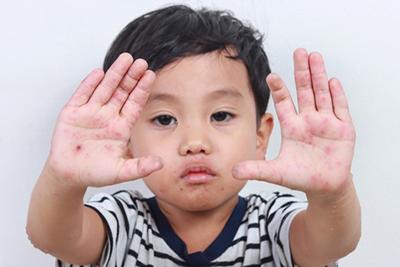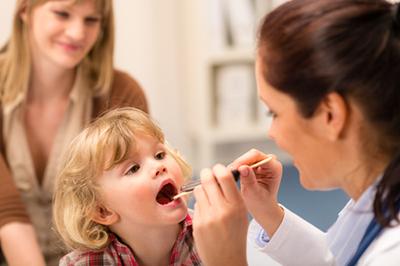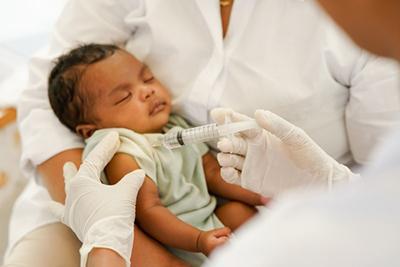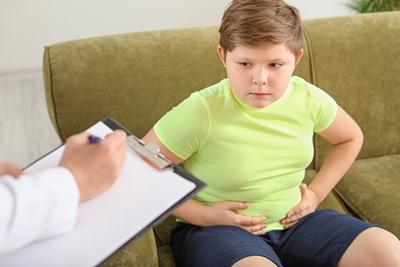My Blog
Managing Asthma Symptoms in Kids
- posted: Apr. 24, 2024
Asthma symptoms often first begin to manifest early in childhood when their immune systems are still in the process of developing. These symptoms can affect your child's quality of life Read More
What Is Hand, Foot, and Mouth Disease?
- posted: Apr. 18, 2024
What Is Hand, Foot, and Mouth Disease? Hand, foot, and mouth disease is a common condition in children. It’s caused by viruses, including enterovirus. The incidence of hand, foot, and mouth Read More
When Should You See Your Pediatrician?
- posted: Apr. 09, 2024
As parents, it's natural to feel concerned about your child's health and well-being, especially when they're experiencing symptoms or discomfort. While many childhood illnesses and injuries can be managed at Read More
How Often Should My Child Be Seeing a Pediatrician?
- posted: Apr. 01, 2024
Here’s the scoop on why you should be bringing your little ones in to see a pediatrician regularly. It's important that you make time to bring your children in to see Read More
Common Childhood Illnesses: Recognizing Symptoms and Knowing When to Seek Help
- posted: Mar. 20, 2024
No matter how healthy your children are, the day will come when they will have childhood illnesses. Some symptoms are quite obvious, like vomiting and diarrhea, but knowing when to Read More
The Importance of Well-Child Visits
- posted: Mar. 09, 2024
Pediatric Healthcare Associates and Dr. Mary Strength are here to provide the care that your child needs to stay healthy. For example, we can give your little one well-child care Read More
What To Expect at a Behavioral Health Evaluation
- posted: Mar. 07, 2024
As a parent, it’s only natural to be curious about your child’s behavior. Is your child’s behavior normal, or is it a sign your child needs help? A behavioral health Read More
The Importance of Regular Well Visits
- posted: Mar. 01, 2024
You want to safeguard your child’s health, but you can't do it alone. You need some help. Regular well visits to your pediatrician can protect your child’s health by providing Read More
When to See a Pediatrician for a Sore Throat
- posted: Feb. 09, 2024
A sore throat is common everywhere, including in Waxahachie, TX. It can affect both adults and children. When it is your child who has a sore throat, you may be Read More
The Importance of Early Childhood Vaccinations
- posted: Feb. 07, 2024
Children are one of the most vulnerable age groups because a child’s immune system is not as well developed as that of an adult. Early childhood vaccinations play an important Read More
Childhood Obesity: Causes, Risks, and Strategies for Prevention
- posted: Feb. 01, 2024
Childhood obesity affects approximately 30% of children in the U.S., and numbers continue to rise. According to the Centers for Disease Control and Prevention (CDC), obesity is one's body mass Read More
Best Ways To Prevent Ear Infections
- posted: Jan. 07, 2024
Ear infections are common in children because their ears are not fully developed, and it can be difficult to properly drain fluid. Ear infections can be brutal, and it can Read More
The Role of Pediatricians in Early Childhood Development
- posted: Jan. 01, 2024
Monitoring your child’s development is an important part of what a pediatrician does. It’s important to visit your pediatrician, because child development is a complex area and needs the expertise Read More
Diagnosing Learning and Developmental Disabilities in Children
- posted: Dec. 26, 2023
Is your child living with learning and developmental disabilities? Dr. Jean Strength and the team at Pediatric Health Care Associates in Waxahachie, TX are here to help ease the path. Diagnosing Read More
Promoting Mental Health in Children
- posted: Dec. 07, 2023
You want your child to be healthy, and an important part of good health is great mental health. Promoting mental health in your child is one of the most important Read More
Supporting Your Child With a Learning and Developmental Disability
- posted: Dec. 03, 2023
Learning and developmental disabilities can affect a child's ability to acquire new skills, understand information, and interact with their environment. These conditions manifest in various forms, such as dyslexia, autism, Read More
This website includes materials that are protected by copyright, or other proprietary rights. Transmission or reproduction of protected items beyond that allowed by fair use, as defined in the copyright laws, requires the written permission of the copyright owners.
Pediatric Healthcare Associates
1710 W 287 Business #100,
Waxahachie, TX 75165
Hours of Operation
Monday
8:00 am - 5:00 pm
Tuesday
8:00 am - 5:00 pm
Wednesday
8:00 am - 5:00 pm
Thursday
8:00 am - 5:00 pm
Friday
8:00 am - 12:00 pm
Saturday
Closed
Sunday
Closed

















